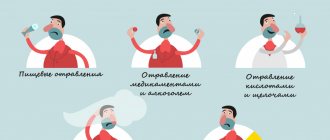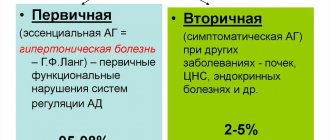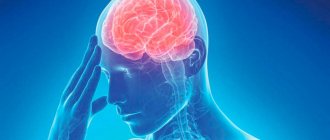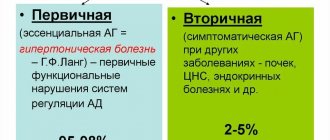- What are panic attacks and their types
- Symptoms
- Mental
- Physical
- Causes
- Provoking factors
- Panic attack in a dream
- What to do during a panic attack: first aid
- Treatment
- Is treatment possible at home?
- Drug treatment
- Psychotherapy
- Phytotherapy
- Breathing exercises
- Physical exercise
- Consequences
- Conclusion
Attention! Drug use causes irreparable harm to health and poses a danger to life!
The term panic attacks appeared relatively recently; earlier doctors called it differently, namely vegetative-vascular disorders that were associated with stress. In medical practice, the disorder is also called cardioneurosis, sympathoadrenaline or autonomic crisis. Attacks can be isolated or regular, the latter disrupting a person’s life and causing complications. A panic attack does not pose a direct threat to a person’s life, but requires urgent treatment.
What are panic attacks and their types
A panic attack is an inexplicable phenomenon of a severe attack of anxiety, fear, which is accompanied by other mental and autonomic symptoms. Some symptoms persist for a long time after the main symptoms disappear. This is an anxiety disorder of a neurotic level associated with stress. The condition can be an independent disease or a symptom of a mental disorder.
There are several types of panic attacks:
- attributive – attacks are associated with specific phenomena;
- not associated – attacks are spontaneous and not associated with stress factors;
- atypical.
1st group. Disturbances in the usual way of life.
This group includes everything that makes a habitually comfortable life uncomfortable. For example:
- deterioration of relationships, conflicts, separation from significant people;
- serious illness or death of loved ones;
- moving to a new place of residence;
- voluntary or forced resignation from work;
- deterioration of financial situation or instability (unpaid loans and/or mortgages);
- litigation;
- prolonged lack of sleep, disturbances in the rhythm of day and night;
- overwork due to overload in the profession, study or everyday life;
- accelerated pace of life;
- overstrain when raising children;
- various somatic diseases;
- unbalanced diet;
- situations when children begin to live separately, etc.
These disturbances in living conditions always lead to anxiety and tension, usually aimed at restoring the disturbed conditions and relationships. If conditions continue to be uncomfortable, then anxiety becomes the foundation on which a panic episode can later occur.
Symptoms
A panic attack is an attack that can last from a few minutes to several hours. The average duration of one attack is 30 minutes. The frequency of attacks for some is 1-2 times a day, for others – several times during the month. But once a person experiences it, he will remember the attack for the rest of his life.
Mental
The mental symptoms of panic attacks are more pronounced. In some cases, a feeling of trouble and danger forces a person to hide and limit communication. The attack is accompanied by the following symptoms:
- panic;
- fear;
- increased anxiety;
- confusion of thinking;
- feeling of a “lump in the throat”;
- impaired perception of reality;
- loss of control over one’s own actions and events;
- clouding of mind;
- a feeling of unreality of what is happening;
- rises in sleep, nightmares.
Physical
The cause of physical symptoms is stimulation of the autonomic nervous system, the release of adrenaline, norepinephrine, and dopamine into the blood. This causes the following symptoms to appear:
- hot or cold flashes;
- cardiopalmus;
- chills;
- increased body temperature;
- hand trembling;
- dyspnea;
- feeling of lack of air;
- hard breath;
- nausea, bowel dysfunction;
- increased urination;
- convulsions;
- blood pressure surges;
- temporary hearing and vision impairment;
- dry mouth;
- sweating
Get help now
Do any of your relatives or friends have an addiction? Have you tried in every possible way to help, but as a result the person still returned to his past life?
You are not the first to encounter this problem, and we can help you.
We guarantee anonymity, we will persuade you to undergo treatment, and we will help you choose a center.
Call us
8
or
Call me
Causes
The mechanism behind the formation of panic attacks is not yet known. There is a theory that an attack is provoked by negative thoughts that provoke the release of adrenaline. The growth of the hormone in the blood leads to increased heart rate, breathing, and increased blood pressure. Adrenaline blocks the receptors responsible for inhibition, and excitement, anxiety, and fears increase. During an attack, a person may be afraid of losing consciousness, which leads to dizziness and numbness of the limbs.
The following reasons can also provoke attacks:
- heart attack;
- cardiac ischemia;
- childbirth, pregnancy;
- menopause;
- an adrenal tumor that interferes with the synthesis of adrenaline;
- thyrotoxic crisis;
- thyroid diseases;
- long-term therapy with hormonal drugs;
- severe stress;
- hereditary history of anxiety or mental disorders.
Provoking factors
In addition to the reasons that directly change the functioning of the autonomic system and the release of adrenaline, norepinephrine, and dopamine, there are also risk factors that increase the likelihood of a panic attack in a healthy person. These include:
- drug and alcohol abuse;
- lack of physical activity – physical inactivity leads to restlessness, impulsiveness and panic attacks;
- smoking;
- chronic lack of sleep;
- constant suppression of emotions.
Panic attack in a dream
Panic attacks in sleep are a separate type of disorder that occurs at night, in silence. At this time, a person tends to concentrate his attention on certain actions and moments, often negative, that provoke an attack. Another cause of a panic attack during sleep can be a nightmare. Most often, anxiety and fear overtake a person between 24 and 4 hours.
The following symptoms are typical for a panic attack during sleep:
- awakening;
- fear, horror;
- a sharp jump in body temperature;
- respiratory spasms;
- violation of orientation in space;
- chills;
- the appearance of cold sweat;
- involuntary urination;
- nausea, diarrhea;
- short-term paralysis of part or all of the body.
As the severity of the attack decreases and awakening, traces of fear and horror gradually fade away, leaving behind confusion and anxiety.
Night attacks significantly undermine a person’s health, since insufficient rest provokes headaches, chronic fatigue, decreased concentration, nervousness, and irritability. Over time, insufficient rest becomes the cause of depressive disorders, and the regularity of panic attacks increases. This provokes the formation of phobias.
What to do during a panic attack: first aid
A panic attack occurs at any time and it doesn’t matter whether the person is in a company or at home alone. When an attack occurs, you need to pull yourself together as quickly as possible and help yourself. For this:
- go out into the fresh air, and if this is not possible, open the door wide open and unbutton tight clothes;
- wash with cold water;
- breathe slowly, deeply, deeply, and to increase the concentration of carbon dioxide in the body, you can breathe into folded palms;
- switch your thoughts to something good, and if that doesn’t work, then count slowly to 100;
- rest your body on a stable surface, grab the table with your hands, which will allow you to gain a feeling of confidence and control;
- convince yourself that the attack will end now and will not cause harm, since this is a figment of the imagination.
If an attack occurs in someone from the environment, it is necessary to help the person, namely:
- do not panic;
- help the victim leave a stuffy room or dangerous place, take him away from the crowd;
- call an ambulance;
- take the victim by the hand if he allows you to do this and listen to him;
- if during a conversation it is possible to determine the cause of the attack, try to eliminate it;
- if there is shortness of breath, let the victim breathe into a paper bag;
- switch attention to other objects or others.
During a panic attack, victims often perceive the person who wants to help negatively, with fear, and sometimes aggressively. In this case, it is enough to simply be nearby to help the person when their condition worsens or to prevent dangerous actions.
Most often, panic attacks develop with mental illnesses such as phobias, depression, schizophrenia or other endogenous mental illnesses, post-traumatic stress disorder, obsessive-compulsive disorder.
How to recognize the disease
Panic attacks, given the variety of its somatic symptoms, can masquerade as various organ diseases.
Most often, the patient feels like he is having a heart attack. Discomfort in the heart area is one of the most common phenomena among “alarmists”. They feel pain and tingling in the chest on the left side, palpitations. A pressing feeling appears, the heart seems to stop. But a regular ECG, echocardiography, ultrasound of the heart, 24-hour ECG and blood pressure monitoring can help rule out heart disease.
As for tachycardia, it is indeed present. But the reason for this is the activation of the sympathetic nervous system as a result of stress.
Another common condition that patients suspect is a stroke. Headaches, increased blood pressure, paresthesia in the form of tingling in the limbs, as well as changes in gait confuse him. The person gets very scared and even calls an ambulance.
The unrealistic fear that accompanies a patient with an attack separates him from reality. A person gets lost in space and does not perceive his surroundings. He fears that he will lose control of himself and do something unacceptable. He feels like he's going crazy. Because of this, such patients often fear that they are developing a mental disorder. Although mental problems can indeed appear. They are the result of a disorder.
Increased concern about one's health causes such a patient to develop hypochondria. He constantly visits all kinds of doctors, takes a whole bunch of tests. When specialists try to explain to him that the cause of his bodily discomfort is more psychological than physiological, they become irritated. And they go to another doctor in the hope that he will help them and get to the bottom of it.
Against the background of the disorder, depressive thoughts appear, since the person is really seriously concerned about his condition and does not know how to help himself.
Agoraphobia is a fear of open spaces or a specific place, literally “fear of the market square” can also become a complication of a panic attack. If the patient associates its occurrence with a certain place, then in the future he will avoid visiting it. A person may even be afraid to leave the house so as not to experience this painful feeling again.
Continuous, complicated attacks of PA can develop into panic disorder. To establish a diagnosis, the following criteria must be present:
- several severe attacks occur in a month;
- without a real threat;
- arises not only against the background of a predictable situation;
- non-anxious periods between attacks.
An important symptom of panic disorder is the constant anticipation of the next attack. In addition, the absence of the influence of psychostimulants (drugs, alcohol) is taken into account. Phobias and obsessive-compulsive disorder are excluded.
To confirm that the patient is really experiencing an attack of PA, and is not suffering from some real disease of the internal organs, the doctor is obliged to prescribe a series of examinations:
- ECG, ECG – monitoring; EEG;
- Ultrasound of the heart and other organs;
- radiography;
- CT, MRI;
- stomach examinations;
- blood test: CBC, liver tests, hormones:
- consultation of narrow specialists.
Treatment
Panic attacks disrupt a person’s life and also cause complications. To prevent them and return to a full life without anxiety and fear, you need to seek help from a doctor. Various methods are used in treatment, but the most effective is the combination of psychotherapy with medications.
Is treatment possible at home?
You can cope with attacks yourself by following these recommendations:
- find an “anchor”, a support that will allow you to take a stable position;
- Do breathing exercises regularly, and during an attack you can use some exercises or simply breathe into a paper bag;
- wear a bracelet that can be pulled back during an attack - the blow shifts the focus of attention, distracts from the trigger;
- remember pleasant moments, persuade yourself to calm down, try to shift your attention from the cause of anxiety;
- don’t be shy about asking for help; you can also repeat the names and contact details of your relatives out loud, which will allow you to coordinate those who are trying to help.
These recommendations will only help you cope with the symptoms of attacks, and will also teach you how to control them.
To completely eliminate the causes of the disorder, you need medical help, physical activity, a balanced diet, sleep, and giving up bad habits. Sometimes changing your type of activity, place of residence, or life attitudes helps to cope with anxiety and fear.
Drug treatment
Drug therapy is prescribed by a psychotherapist based on the patient’s condition and the severity of the attacks. Today, pharmacotherapy in the CIS countries is considered the most accessible, but not the most effective, since medications only help eliminate symptoms, while the trigger remains. During treatment, the doctor may prescribe the following groups of medications:
- Sedatives. Their effectiveness in treating panic attacks has not been proven. However, having medications with a sedative effect on hand can reduce anxiety and distract you, since for some, taking medications is a ritual with a powerful sedative effect.
- Tranquilizers. They are able to quickly cope with anxiety symptoms, eliminate fear, and stabilize mood. However, drugs in this group have many contraindications. They are prescribed in short courses, and dosages are selected individually.
- Neuroleptics. Helps cope with vegetative and mental symptoms of attacks.
- Nootropics. The effectiveness of these drugs has not been proven. There is an opinion that the use of nootropics for panic attacks increases mental and autonomic symptoms.
- Antidepressants are a group of drugs that have proven effective in treating anxiety disorders. Doctors prefer selective serotonin reuptake inhibitors, which are relatively safe and have minimal contraindications. The duration of taking antidepressants is individual - the minimum course is a month, and the maximum is 1 year.
Psychotherapy
Psychotherapy together with drug treatment will not only alleviate the condition and help you endure attacks more easily, but will also help you find the cause of anxiety and fear and cope with them. Cognitive-behavioral practice is most effective in treating panic attacks.
During treatment, the psychotherapist will help:
- find the causes of fear, anxiety, as well as risk factors, teach you how to control them;
- analyze thoughts and reasoning that destroy a person;
- learn self-help techniques;
- adjust behavior;
- motivate for recovery;
- resolve internal conflicts.
In addition to cognitive behavioral therapy, the following will also be effective: family therapy, psychoanalysis, art therapy, music therapy, animal therapy. In severe cases, hypnosis may be prescribed.
Phytotherapy
To alleviate the condition during attacks or the appearance of causeless fear and anxiety, herbs that have a sedative effect can be used at home. These include chamomile, valerian, mint, lemon balm, motherwort, St. John's wort, and linden. Based on these herbs, you can prepare soothing teas and drink them with honey.
Herbal medicine is not an independent method of treating panic attacks and can only be used as an auxiliary measure.
Breathing exercises
Breathing exercises help you relax and breathe normally, deeply, which is necessary during an attack. They can be performed anywhere at any time, as no additional equipment is required. The exercise is performed as follows:
- place one hand on your chest, the other on your stomach;
- take a deep breath through your nose, increasing the size of your belly, while your chest should remain motionless;
- As you exhale, tighten your abdominal muscles, slowly releasing the air.
Diaphragmatic breathing helps not only to calm down and relax, but also to stabilize blood pressure and eliminate other vegetative symptoms.
During the exercise, you may experience weakness and slight dizziness, which is normal and is associated with a decrease in blood pressure.
Physical exercise
In the fight against stress and normalization of the functions of the autonomic system, physical activity is effective, which promotes the release of endorphins into the blood. It is useful for people suffering from panic attacks to ride a bicycle, rollerblade, walk in the fresh air, or swim.
Meditation to relaxing, pleasant music is also effective. It is not necessary to have special skills. It is enough to sit on the floor with a straight back and close your eyes. Next, concentrate on breathing and think about the good, that the panic attacks will subside and will no longer bother you.
With proper treatment with psychotherapy, medications, and lifestyle changes, panic attacks can be managed forever.
Who to turn to for help and how to diagnose
Poor awareness among people about panic disorder leads to the fact that some consider it completely frivolous, while others consider it a dangerous incurable mental illness. Therefore, they believe, you should not go to doctors: in the first case there is no need, and in the second the main role is played by the fear of being branded as mentally ill. Both opinions are completely unfair: it is both very serious and completely controllable and treatable. A competent approach will allow you to successfully and fairly quickly get rid of the problem.
First of all, you need to understand that you need to contact only experienced, highly qualified specialists - a psychiatrist, who will develop treatment tactics based on the causes of a panic attack, because they are the ones that need to be eliminated. The doctor will determine why the patient’s nervous system could not withstand the load and malfunctioned in the form of panic manifestations.
The doctor must carefully examine the patient to establish an accurate diagnosis and study the symptoms. The selection of therapy is made based on the characteristics of the patient’s body on an individual basis. The work of a professional consists not only of recommendations and prescribing certain medications, but also of carefully monitoring the progress of treatment and, if necessary, its correction.
As for the psychologist, such a specialist is useless in this case - he is not able to identify the causes of the pathological disorder and prescribe medication and psychotherapeutic treatment, which, in case of getting rid of this problem, are necessary. The picture is the same with sorcerers, psychics and “wise” advisers from the Internet - they will only bring harm to the patient, which is then quite difficult to correct, aggravating his not the best condition.
The psychiatrist, first of all, will seek advice from a cardiologist, therapist, endocrinologist, neurologist, or psychotherapist. This is necessary to exclude the presence of somatic and serious mental illnesses.
It should immediately be noted that a therapist in ordinary clinics does not have the opportunity to carefully and competently examine the patient. In addition, long queues and the nervous atmosphere in them often serve as an impetus for another panic attack, and the person generally loses all desire to be treated.
In specialized paid clinics, such a picture is not observed: any person who comes here receives great attention. In addition, it is usually comfortable; highly qualified doctors work here, “armed” with advanced techniques and equipment for accurate diagnosis and successful treatment. The latter implies the use of pharmacology, psychotherapy, physiotherapy in combination, as well as changing the usual lifestyle.
The attitude of the patient himself to the treatment of panic attacks is also important - he must understand his problem, that this, in essence, is not a disease at all, but a sign of a disorder of higher nervous activity. For a successful result, you need the desire and good will of the patient, compliance with all the doctor’s recommendations.
Consequences
Panic attacks significantly worsen a person’s quality of life and, if left untreated, can cause the following complications:
- self-isolation, fear of society, interruption of contacts with other people;
- decreased self-esteem;
- loss of confidence in the future;
- wariness, anxiety, which can provoke aggression towards the environment;
- sexual dysfunction;
- the formation of mental disorders with frequent repetition of attacks;
- conflicts in the family;
- problems at work, study;
- abuse of alcohol and drugs to combat panic;
- exacerbation of chronic diseases;
- disorders of the digestive tract, dystrophy due to refusal to eat due to anxiety;
- fear of death.
Conclusion
Panic attacks are often unreasonable fear and anxiety that arise under the influence of some traumatic factor on a person. The attack itself is not dangerous, but against the backdrop of uncontrollable fear, a person can commit rash acts, and frequent disorders disrupt his life. A constant feeling of fear and anxiety leads to insomnia, refusal to eat, severe exhaustion and exacerbation of chronic diseases. Panic attacks need to be treated and can be eliminated with psychotherapy, medication and lifestyle changes.
Medication support
A psychiatrist is involved in selecting medications for the treatment of panic attacks. A properly selected medication regimen will quickly reduce the frequency, intensity and number of symptoms of panic attacks. Appointments may include:
- Tranquilizers for quick relief of panic attacks. These drugs can cause addiction, so in no case should you increase the dosage on your own and use them daily, just to prevent attacks. These remedies are first aid for a severe panic attack, nothing more.
- Antidepressants for panic attacks. These drugs are used in serious cases where a panic attack occurs due to depression. This indicates a serious stage of the disease, which may require not only treatment for panic attacks, but also treatment for depression in a hospital.
- Beta blockers. The drugs quickly reduce high blood pressure and tachycardia during panic attacks.
- Nootropics. People suffering from panic attacks often complain of problems with memory and thinking in general. These drugs help improve blood circulation and brain performance.











